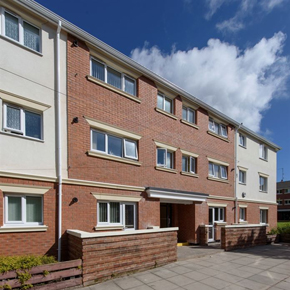
UK’s housing stock must be a “national infrastructure priority”
Calls have been made to recognise energy efficiency as a “national infrastructure priority”, after it was revealed that around 25 million homes will not meet the insulation standards required in order to meet the UK’s sustainability targets.
The UK is required to reduce its carbon emissions by 80 per cent (compared to 1990 levels) before 2050, to meet the current targets set by the 2008 Climate Change Act.
According to a new report by the Green Building Council, one-third of those emissions are created from heating poorly insulated buildings; and that 1.4 homes per minute will need to be refurbished in order to rectify this.
Fixing the housing stock
Britain’s floundering housing stock has been the subject of much criticism as successive government’s have failed to deliver a national programme of home renovations.
Funding appears to be at the centre of the issue: as local authorities struggle, with limited cash available to insulate council homes, private landlords and homeowners are put off investing such large amounts of money into improvements that will save on energy bills, but take years to pay off.
The government has failed to introduce a replacement solution for the Green Deal and the treasury seems reluctant to invest public money in improvements that will increase the sale value of private homes.
Making it happen
‘Building Places That Work for Everyone’, the Green Building Council report that was released to parliament on February 28th, says that the solution lies in recognising the issue as national infrastructure priority.

Fully exploiting the potential market in home energy efficiency alone could create more than 108,000 jobs.
It suggests introducing a clear timetable for improving energy standards in building regulations and reintroducing the zero-carbon standard that was scrapped before it even began in 2015.
A national delivery programme with a range of finance options for all ventures and household circumstances has also been put forward, in addition to a mandatory operational energy rating to enable maximum transparency in commercial buildings.
Investing in sustainability
The sustainable construction industry is worth an estimated $288 billion worldwide. According to the E3G, an independent expert on climate diplomacy and energy policy, fully exploiting the home energy efficiency market could create more than 108,000 jobs and save £2.7 billion a year in natural gas import costs.
Government investment in sustainable housing could also reduce NHS costs by £1.4 billion a year, according to a study by the BRE, whilst an energy efficient housing stock could reduce household energy bills by £300 each year and lift 90 per cent of fuel poor families out of fuel poverty.
Latest news

17th April 2025
Nuaire shares expertise at Specifi Mechanical Services events in 2025
Indoor air quality and ventilation manufacturing specialist Nuaire is pleased to be exhibiting at the Specifi Mechanical Services events once again in 2025.
Posted in Air Conditioning, Articles, Building Industry Events, Building Industry News, Building Products & Structures, Building Services, Exhibitions and Conferences, Facility Management & Building Services, Heating, Ventilation and Air Conditioning - HVAC, Restoration & Refurbishment, Retrofit & Renovation
15th April 2025
West Fraser: CaberDek earns top marks from Home Counties carpentry specialist
A specialist carpentry sub-contractor covering housing sites across a large swathe of the Home Counties has come to value CaberDek from the West Fraser range for a variety of reasons: not least because the high quality panel product doesn’t destroy his operatives’ electric saws!
Posted in Articles, Building Industry News, Building Products & Structures, Building Systems, Case Studies, Restoration & Refurbishment, Retrofit & Renovation, Roofs, Timber Buildings and Timber Products, Wooden products
15th April 2025
GEZE: The Role of Access Control Systems in Enhancing Building Safety
Jane Elvins, Specification and Business Development Manager at GEZE UK, delves into the role of access control systems in enhancing building safety…
Posted in Access Control & Door Entry Systems, Architectural Ironmongery, Articles, Building Industry News, Building Products & Structures, Building Services, Doors, Facility Management & Building Services, Health & Safety, Restoration & Refurbishment, Retrofit & Renovation, Security and Fire Protection
11th April 2025
Don’t Do a Dave! It’s Time to Lock FIT Show 2025 in Your Calendar!
It’s that time again – FIT Show is back! You could be forgiven for thinking there won’t be much new to see when FIT Show returns to the NEC from 29 April – 1 May. Wrong!
Posted in Articles, Building Industry Events, Building Industry News, Building Products & Structures, Building Services, Continuing Professional Development (CPD's), Exhibitions and Conferences, Information Technology, Innovations & New Products, Restoration & Refurbishment, Retrofit & Renovation, Seminars, Training
 Sign up:
Sign up: